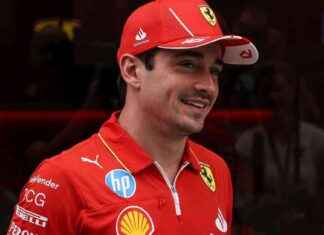The tennis star posted a statement to social media, blaming “human error” by his team for not declaring that he had traveled during the two-week period prior to entering Australia.
His visa was cancelled upon his arrival and later reinstated. This is part of a continuing dispute over whether Djokovic should be allowed to enter the country, despite not having been vaccinated against COVID-19. Djokovic’s exemption from vaccination rules for entry to the country prompted a furious response. The dispute has since overshadowed the Australian Open.
Djokovic admitted to his lapses when trying to clarify “continuing misinformation” regarding his movements after he was infected last month. However, he didn’t specify what inaccuracies were being referred to.
The statement was made while the No. 1 men’s tennis player was practicing. 1. was at Rod Laver Arena, holding a practice session. This was his third time on the main court of the tournament since being released after four nights of immigration detention.
The Australian Open champion, nine-times and defending champion, is still in doubt before next Monday’s first major tennis event. He is aiming for a record 21st Grand Slam singles title.
Although he won Monday’s legal battle on procedural grounds, he is still subject to deportation as his exemption from COVID-19 vaccine rules was questioned. If deemed necessary for safety and health reasons, this decision will be made entirely at Australia’s discretion.
A deportation could lead to sanctions that can reach up to three years from Australia. This is a frightening prospect for a player who has already won nearly half his 20 Grand Slam singles titles.
Court documents confirming Djokovic’s positive result have sparked speculation about the star player’s attendance to events in Serbia last month. Additional questions were raised regarding Djokovic’s immigration form errors that could lead to his visa being cancelled.
Djokovic stated on the form that he hadn’t traveled for 14 days prior to his flight to Australia, even though he was seen in Spain and Serbia during that time.
Djokovic said that recent comments were “hurtful” in his statement and stated that he wanted “to allay broader concern within the community about me being in Australia.”
According to the 34-year-old Serb, he had previously taken negative rapid tests and was asymptomatic prior to receiving his positive result from a PCR. He undertook it out of “abundances of caution” after attending a Belgrade basketball match on Dec. 14.
He said he received the results late Dec. 17 and canceled all of his commitments, except for a long-standing interview with L’Equipe newspaper on the next day.
Djokovic stated that he felt obliged to proceed with the interview, but that he did make sure he socially distanced himself and used a mask when taking my photograph. “I went home from the interview to isolate myself for the required time, but this was a mistake of judgment,” Djokovic said.
In Serbia, COVID-19 infected persons must be isolated for 8 days. However, they can still get out of the country if they are negative.
L’Equipe’s reporter interviewed Djokovic and wrote that they were both masked during the session. They kept their distance, except for a moment when Djokovic bid farewell. According to the reporter, he had tested negative for COVID-19 Monday and didn’t mention the status of his photographer.
Djokovic responded to the Australian travel declaration with a statement that it was submitted by his support staff and that “my agent sincerely regrets the administrative error in ticking the wrong box.”
He wrote, “This was an error of human nature and it certainly wasn’t deliberate.” “My team provided additional information to Australia’s Government to clarify the matter.”
It could take some time, but there is pressure to make the right decision as the draw to determine brackets is scheduled to take place on Thursday.
Alex Hawke, Immigration Minister, issued a statement stating that Djokovic’s legal teams had filed additional documents. He also added: “Naturally this will affect the timeline for a decision.”
The question is whether he can enter Australia without being vaccinated, as he recently underwent COVID-19.
The Victoria state government approved his exemption to compete and Tennis Australia, the tournament’s organizer. This allowed him to obtain a visa to travel.
The Australian Border Force denied the exemption and cancelled his visa on arrival. A federal judge overturned the decision. The government’s lawyers claimed that an infection is only grounds for an exemption for cases where the coronavirus causes severe illness. However, it’s unclear why he was granted a visa.
Djokovic’s initial decision to allow him to compete led to complaints about Djokovic being treated differently. His visa was then cancelled, raising suspicions that he was being used as a political target. This is all taking place against the backdrop Australians growing concern about the number of COVID-19 cases and the government’s plan to stop them.
Greg Barns, a lawyer based in Australia who has experience in visa cases, stated to The Associated Press that Djokovic does not need to be notified by writing and can cancel the visa without any notice.
His lawyers could apply to the court for an injunction to prevent Djokovic from leaving the country if his visa is revoked.
Barns stated that Djokovic could have up to nine days to reply if the government chooses to give notice instead.
Barns suggested that Djokovic might have been given a chance to play in the tournament, and then kick him out.
Simon Jeans, an immigration lawyer based in Sydney, said that there are “a lot” of “fudges in the law. The immigration department will be taking its time to ensure that any visa cancellation is “appeal-proof.”







